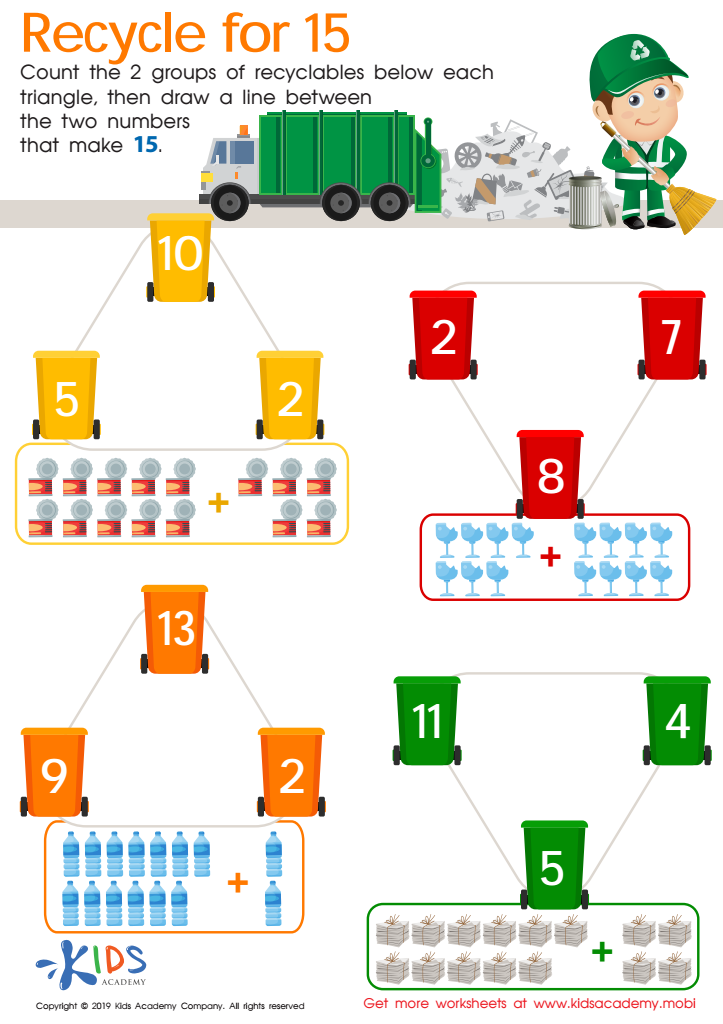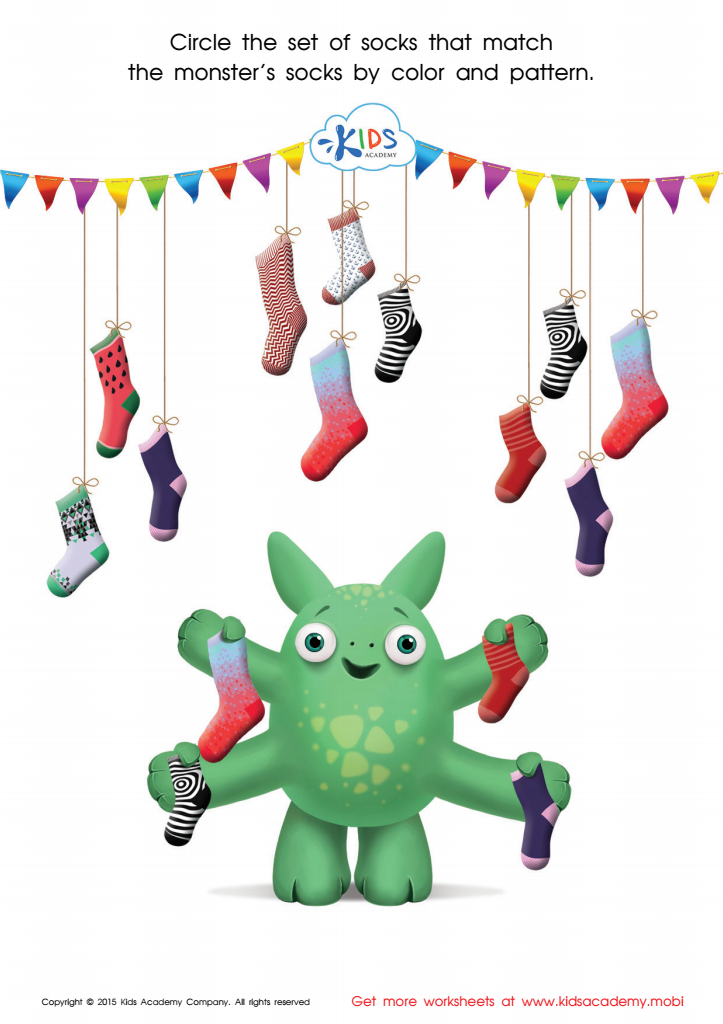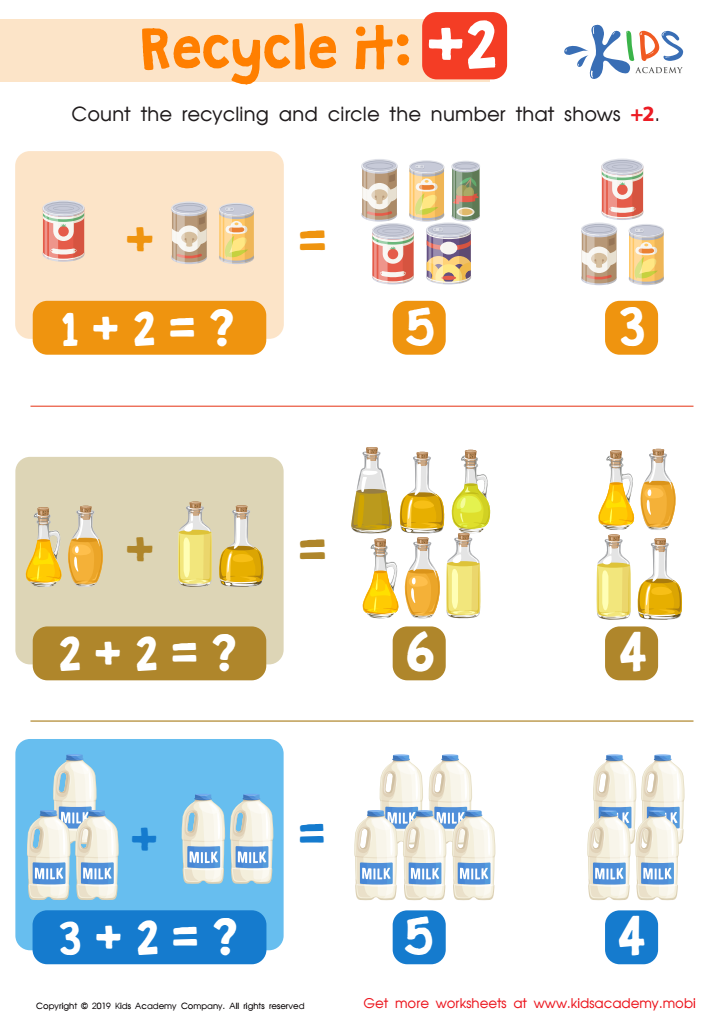Sorting skills Addition & Subtraction Worksheets for Ages 4-5
3 filtered results
-
From - To
Boost early math proficiency with our engaging "Sorting Skills Addition & Subtraction Worksheets" designed for children ages 4-5. These worksheets seamlessly blend fun with learning, helping young minds grasp essential concepts of addition and subtraction through sorting activities. Each sheet employs vibrant visuals and simple exercises, making math an exciting adventure. Ideal for preschoolers and kindergarteners, our resources are perfect for honing counting, categorization, and problem-solving skills. Give your child a head start in math with our expertly crafted, easy-to-understand worksheets, available for free download. Nurture their math ability with Kids Academy today!


Recycle for 15 Worksheet


Sort the Monster's Socks Worksheet


Recycle It: +2 Worksheet
Parents and teachers play a crucial role in fostering the development of foundational skills in young children, particularly ages 4-5. Introducing sorting skills, addition, and subtraction at this formative stage is essential for several reasons.
Firstly, sorting activities help children learn to categorize objects, identify patterns, and recognize similarities and differences. These cognitive abilities are fundamental for logical thinking and problem-solving, forming the bedrock for more complex math and science concepts later in life.
When it comes to addition and subtraction, these basic arithmetic skills are pivotal for everyday tasks. Teaching young children the concepts of addition and subtraction helps them understand relationships between numbers and quantities, enhancing their number sense. This foundational understanding makes future math learning more intuitive and less daunting.
Equally important, engaging in sorting, adding, and subtracting exercises introduces children to key executive functions such as memory, attention, and cognitive flexibility. Activities can be done playfully using objects children love, such as toys, helping to sustain their interest and enjoyment.
By focusing on these skills at an early age, parents and teachers help build a solid mathematical foundation, ultimately fostering confidence, enthusiasm, and a proactive attitude toward learning in general. This early engagement can have long-term benefits, influencing academic success and practical life skills.
 Assign to My Students
Assign to My Students
















